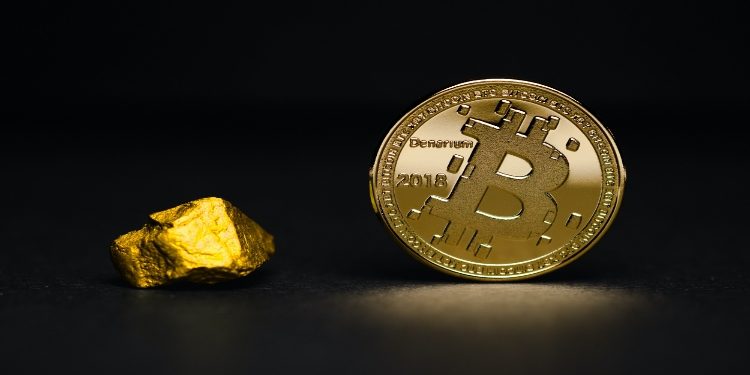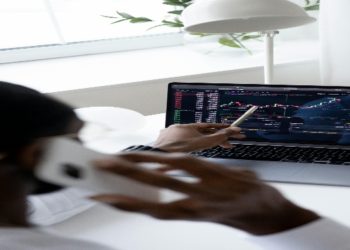Cryptocurrency enthusiasts and financial innovators have been captivated by the revolutionary potential of blockchain technology. In this article, we delve deep into the world of decentralized finance (DeFi) and explore how two key players, Bitcoin and Maker (MKR), are shaping the future of finance. We will unravel the essence of Bitcoin, understand the MakerDAO ecosystem, and examine how these elements intertwine in the realm of DeFi. Ready to elevate your trading experience? Head to MATRIXATOR and experience all the remarkable features our platform provides.
Understanding Bitcoin
Bitcoin’s Origin and Satoshi Nakamoto’s Vision
Bitcoin, created by an anonymous entity known as Satoshi Nakamoto in 2008, was conceived as a peer-to-peer digital cash system. Nakamoto’s whitepaper introduced the concept of a decentralized ledger, the blockchain, as a solution to the double-spending problem.
How Bitcoin Works: Blockchain Technology
Bitcoin transactions are recorded on a public ledger called the blockchain. Miners validate and secure these transactions through a process known as proof-of-work (PoW), ensuring the integrity of the network.
Bitcoin as Digital Gold: Store of Value
Over the years, Bitcoin has evolved from a digital currency to a store of value often compared to gold. Its limited supply of 21 million coins and scarcity have led to its recognition as “digital gold,” attracting investors seeking a hedge against inflation and economic instability.
Bitcoin’s Role in the DeFi Ecosystem
Bitcoin’s liquidity and popularity make it a pivotal asset in the DeFi ecosystem. Wrapped Bitcoin (WBTC) tokens enable Bitcoin holders to participate in DeFi protocols, providing liquidity and earning interest.
Maker (MKR): The Foundation of DeFi
Introduction to MakerDAO
MakerDAO is a decentralized autonomous organization (DAO) at the heart of DeFi. Its primary goal is to provide a stablecoin called Dai, which is collateralized by a variety of assets, including Ethereum (ETH) and BAT.
The Role of MKR Tokens
MKR tokens are the governance tokens of MakerDAO. Holders of MKR have voting rights in the protocol’s decision-making processes, including adjustments to stability fees, collateral types, and the governance of the system.
Stability and Governance within MakerDAO
MakerDAO’s decentralized governance model empowers the community to maintain the stability of the Dai stablecoin. This dynamic governance ensures that Dai maintains its peg to the US dollar.
Maker’s Contribution to the DeFi Revolution
MakerDAO’s pioneering approach to collateralized stablecoins has been a catalyst for the broader DeFi movement. It has provided a blueprint for other DeFi protocols to build upon, leading to a flourishing ecosystem.
DeFi: A Paradigm Shift in Finance
What is Decentralized Finance (DeFi)?
DeFi refers to the decentralized, blockchain-based financial ecosystem that aims to recreate traditional financial services such as lending, borrowing, and trading in a trustless and permissionless manner.
Key Benefits and Advantages of DeFi
DeFi offers several advantages, including global accessibility, increased financial inclusion, reduced intermediaries, and composability—the ability for different DeFi protocols to interact with each other seamlessly.
DeFi Lending and Borrowing with MakerDAO
MakerDAO’s lending and borrowing platform allows users to lock up collateral and mint Dai stablecoins. Borrowers can access liquidity while maintaining exposure to their collateral’s potential price appreciation.
The Rise of Automated Market Makers (AMMs)
Automated Market Makers like Uniswap and SushiSwap have become integral to the DeFi ecosystem, providing decentralized and automated trading services, as well as liquidity provisioning.
Bitcoin in the DeFi Ecosystem
Wrapped Bitcoin (WBTC) and its Significance
WBTC is an ERC-20 token backed 1:1 by Bitcoin, making it possible for Bitcoin to be utilized within the Ethereum ecosystem. This has led to increased liquidity and utility for Bitcoin in DeFi.
Bitcoin’s Role in Yield Farming and Liquidity Provision
Yield farming allows users to earn rewards by providing liquidity to DeFi protocols. Bitcoin’s participation in DeFi pools has become increasingly popular, enabling users to earn yields on their holdings.
Bitcoin as Collateral for Borrowing in DeFi
Some DeFi platforms accept Bitcoin as collateral, allowing users to borrow against their Bitcoin holdings. This can be a valuable tool for traders and investors seeking to access capital while holding Bitcoin.
Risks and Challenges Associated with Bitcoin in DeFi
While Bitcoin’s integration into DeFi offers many benefits, it also poses risks, including smart contract vulnerabilities, regulatory concerns, and potential liquidity issues in the event of a market downturn.
Maker (MKR) Governance and Decentralization
The Importance of Decentralized Governance
Decentralized governance is a cornerstone of DeFi projects like MakerDAO, as it empowers the community to make decisions collectively and adapt to changing circumstances.
Maker’s Governance Token (MKR) and Voting Rights
MKR holders have the responsibility of participating in governance decisions, including collateral onboarding, parameter adjustments, and emergency responses, ensuring the stability of the MakerDAO system.
Recent Governance Decisions and Their Impact
MakerDAO has faced significant governance decisions, such as adding new collateral types and adjusting stability fees, which have had a substantial impact on the DeFi ecosystem.
The Roadmap to Further Decentralization
MakerDAO continues to strive for greater decentralization, with plans to introduce decentralized oracles and expand the list of collateral types accepted to reduce reliance on centralized assets.
Future Trends and Challenges in DeFi
Regulatory Concerns in the DeFi Space
As DeFi grows, it faces increasing scrutiny from regulators worldwide. The industry must navigate a complex regulatory landscape while preserving its decentralized ethos.
Scaling Solutions and Interoperability
DeFi projects are exploring various scaling solutions, including Layer 2 solutions and cross-chain interoperability, to address scalability issues and enhance user experience.
NFTs and the Convergence of DeFi with the Metaverse
Non-fungible tokens (NFTs) have gained significant attention, leading to potential intersections between DeFi and the emerging metaverse, creating new opportunities and challenges.
The Potential of Cross-Chain DeFi Integration
Cross-chain solutions aim to bridge different blockchain networks, enabling assets and data to flow seamlessly between them, potentially opening new avenues for DeFi innovation.
Conclusion
As we wrap up our exploration of Bitcoin, Maker (MKR), and the realm of decentralized finance, it becomes evident that DeFi is reshaping traditional financial models. Bitcoin’s emergence as digital gold and MakerDAO’s pioneering strides in decentralized stablecoins have paved the way for a more inclusive and accessible financial landscape. Nevertheless, DeFi confronts hurdles, ranging from regulatory scrutiny to scalability issues, as it continues its evolution and expansion. In this dynamic environment, individuals must stay informed about cutting-edge solutions that can provide valuable resources for effectively navigating the ever-changing DeFi terrain. The future of finance unfolds in the decentralized realm, with Bitcoin and MakerDAO leading the charge.
David Prior
David Prior is the editor of Today News, responsible for the overall editorial strategy. He is an NCTJ-qualified journalist with over 20 years’ experience, and is also editor of the award-winning hyperlocal news title Altrincham Today. His LinkedIn profile is here.












































































